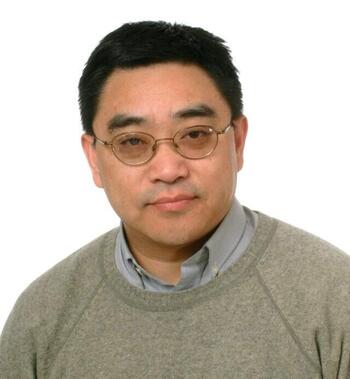Co-sponsored with the Bush China Foundation
This event is part of Shorenstein APARC's spring webinar series "The United States in the Biden Era: Views from Asia."
The coronavirus pandemic has reinforced the importance of investing in population health domestically and globally, and of public-private collaboration in innovation for health goals--from technology for healthy aging to poverty alleviation and addressing other social determinants of health disparities. China, as the first health system to experience the devastation of COVID-19 and to rebound from pandemic control, offers lessons relevant beyond its borders. What can we draw from China's progress on healthcare development and its aims for innovation and public-private collaboration? In this webinar, Chinese practitioners and experts from academia and government will share their views on post-pandemic health policy and draw lessons for cooperation in global health. Scholars who have worked in and studied both the PRC and US health systems will discuss the challenges facing both—from strengthening risk protection and aligning incentives for quality improvement, to promoting goals articulated in the US’ 5th iteration of population health ‘ten-year plans’ (“Healthy People 2030”) and the PRC’s more recent “Healthy China 2030” and broader 14th Five Year Plan. What will it take to implement these ambitious goals? What is the linkage between health and China's foreign policy objectives and its place in the world? PRC experts share their views in this webinar co-hosted by Stanford’s Asia Health Policy Program and the George H. W. Bush Foundation for U.S.-China Relations.
Panelists:
Ying Cao is the China country director at Vital Strategies, where she leads the team to strengthen local public health systems through Vital Strategies’ Resolve to Save Lives’ global cardiovascular health initiative, tobacco control program, road safety program and evidence-based communication and policy advocacy. Dr. Cao brings over 15 years of experience in designing, leading, implementing and monitoring projects in the field of health and nutrition. She has extensive experience managing complex programs in China, with a specific focus on government and community-based programs to address unbalanced resource allocations to underprivileged areas. Prior to joining Vital Strategies, Dr. Cao served as the director of Program Operations in Save the Children in China. Prior to Save the Children, she spent six years working in health and development within the non-profit sector and five years as a senior physician specializing in diagnostic ultrasound at Shanghai Ruijin Hospital. Dr. Cao holds a master’s degree in public health nutrition from Wageningen University in the Netherlands and a bachelor’s degree in medicine from Shanghai Second Medical University.
Gordon Liu is a leading expert on health and development economics, health policy reform, and pharmaceutical economics in China. He is a key figure in Chinese health care reform efforts and sits on the China State Council Health Reform Advisory Commission. Dr. Liu currently serves as an associate editor for Health Economics and China Economic Quarterly (CEQ) journals and was a coeditor of Value in Health, the official journal of ISPOR, and the editor-in-chief of the China Journal of Pharmaceutical Economics. He is president of the Chinese Society for Pharmacoeconomics and Outcomes Research and served as president of the Chinese Economists Society (CES). Prior to joining Peking University, Dr. Liu was a tenured associate professor at the University of North Carolina at Chapel Hill and an assistant professor at the University of Southern California.
Dr.
Xiaofeng Liang received his medical degree at Shanxi Medical University in 1984 and a Master's degree in Public Health from the College of Public Health of Peking University of Medicine in 1995. From 1996 to 1998, he worked as a visiting scholar at the Department of Psychiatry and Behavioral Sciences, College of Medicine, University of Miami, Florida, USA. After his return to China, he held the positions of Vice-Director of Epidemic Prevention Station of Gansu Province (1999-2000), Vice-Director of Institute of Epidemiology and Microbiology, CAPM (2000-2001), and the Director of Immunization Program (NIP) of China CDC (2001-2011), and deputy director of China CDC. He is the winner of the 2013 Wu Jieping-Paul Janson Medicine and Pharmacy award and has been recognized as an outstanding contribution expert of the Ministry of Health China 2011-2012. He received the special allowance subsided by the State Council of China in 2010. Since 2008, he has been a member of the Global Strategy Advisory Group of Experts (SAGE) on Immunization of the WHO. He served as the Vice Secretary-general of the Chinese Foundation of Hepatitis Prevention (2005). He was a member of the Chinese Committee Advisory of Immunization Practice, the Chinese Association of Community Health and the Branch of Biological Products, and the Chinese Association of Prevention Medicine. He was a member of the National Polio Eradication Certification Committee and a member of the National Measles Elimination Verification Committee. His research in public health led to advances in immunization and vaccine-preventable disease control in China. As the principal investigator on the Key Programs for Science and Technology Development of China since 2004, his main scientific research has focused on the epidemiology regularity and prevention and control countermeasures of Hepatitis B. His current research is focused on non-communicable disease control and nutrition and tobacco control. He is the author of more than 30 articles in national and international journals, such as
The Lancet and,
The New England Journal of Medicine.




